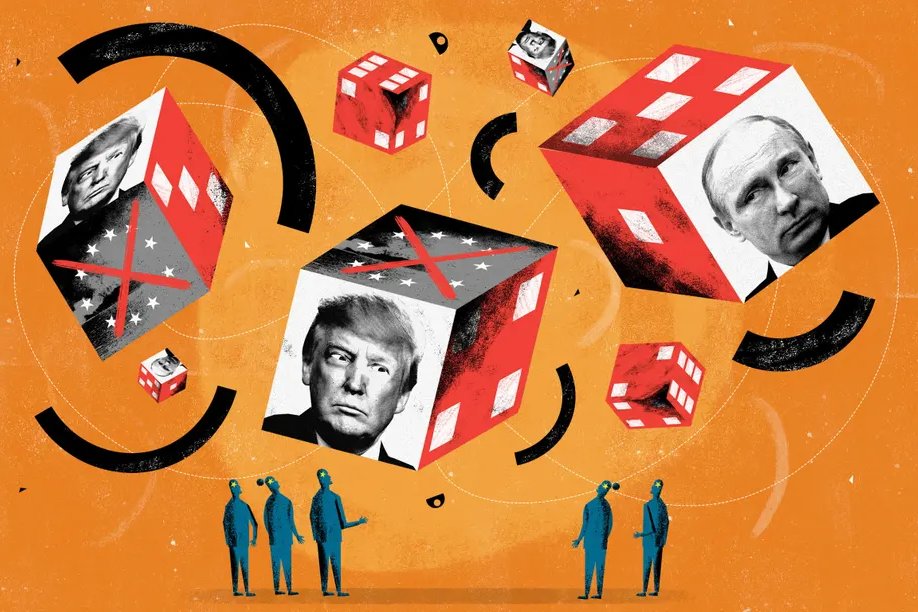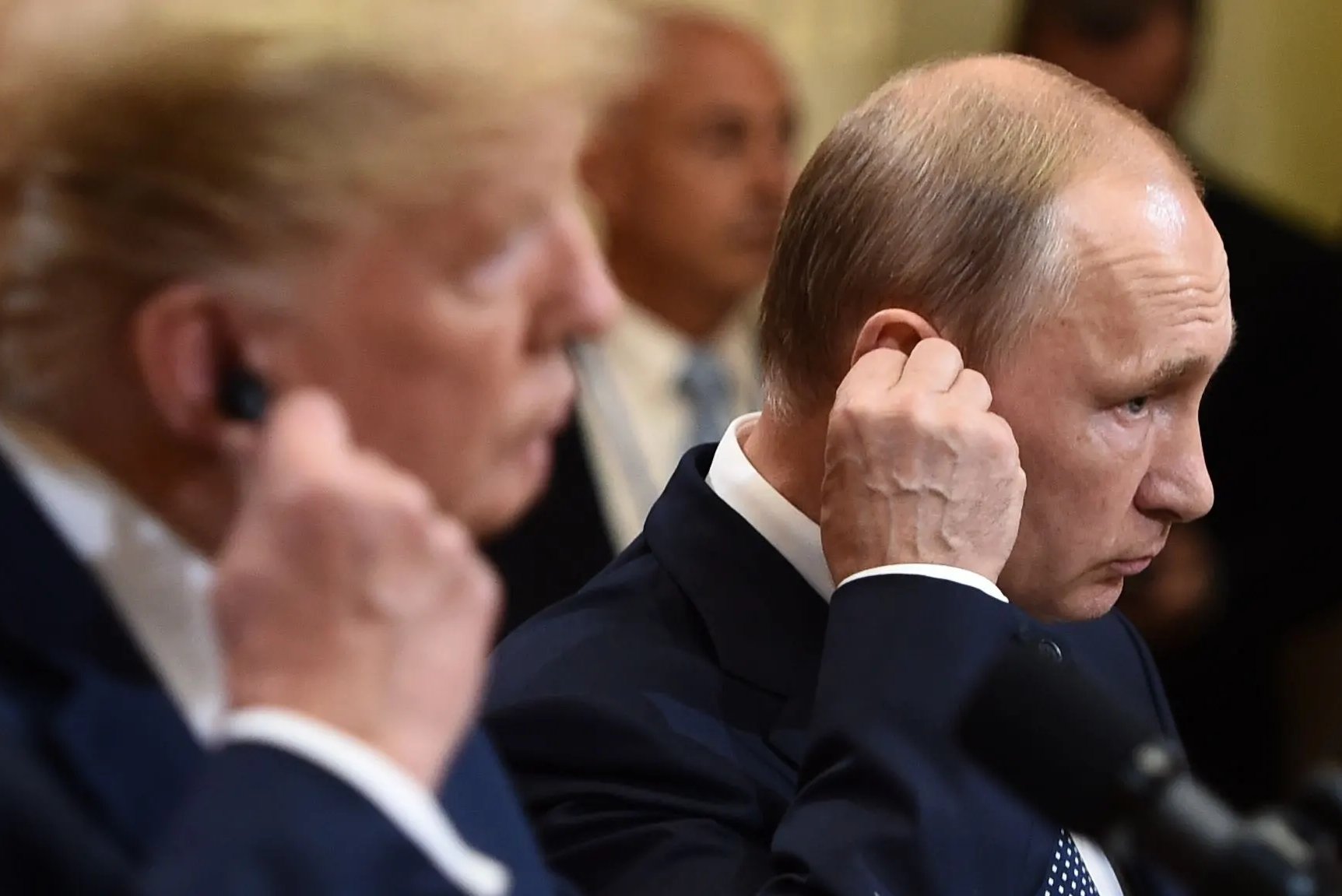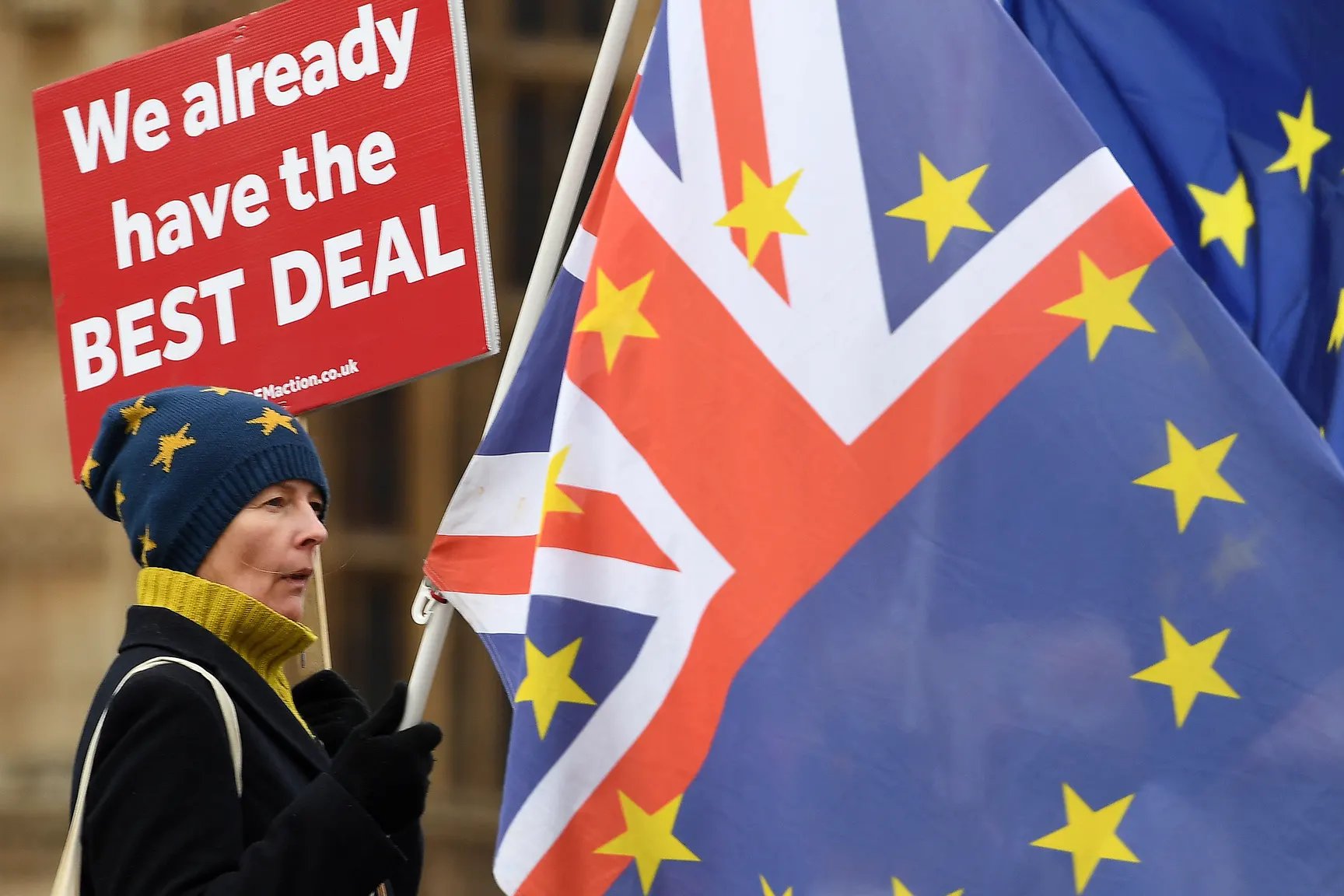
Date: 2026-01-22 Page is: DBtxt003.php txt00016065
International Affairs
Brexit
The best way to scupper Putin and Trump? Scrap Brexit ... The autocratic Russian and US presidents see the UK leaving the EU as a vindication of their worldview
Burgess COMMENTARY
Peter Burgess
The best way to scupper Putin and Trump? Scrap Brexit
The autocratic Russian and US presidents see the UK leaving the EU as a vindication of their worldview

Illustration by Nate Kitch Illustration: Nate Kitch for the Guardian
Last week I was browsing through Henry Kissinger’s 2014 book, World Order, when the news broke that Jim Mattis, the US defence secretary, had resigned, sending a shockwave of new uncertainties across Europe. It made these lines from Kissinger all the more striking: “The United States has every reason from history and geopolitics to bolster the European Union and prevent its drifting off in a geopolitical vacuum; the United States, if separated from Europe in politics, economics and defence, would become geopolitically an island off the shores of Eurasia, and Europe itself could turn into an appendage to the reaches of Asia and the Middle East.”
One key sentence in Mattis’s resignation letter pointed to the importance of the US respecting its allies. It read like a final verdict on something Europeans had been dreading ever since Donald Trump’s election but were wary of acknowledging: the utter indifference of this American leader to postwar alliances. A US “separated from Europe” has suddenly become more of a reality.

Donald Trump, left, and Vladimir Putin
‘Neither Donald Trump nor Vladimir Putin are going away any time soon. Brexit on the other hand increasingly looks like a fading prospect.’ Photograph: Brendan Smialowski/AFP/Getty Images
But something else made Kissinger’s words resonate: the fact that Mattis’s decision came so shortly after Trump had announced a sudden US withdrawal from Syria. Europe’s politics have been upended by the 2015 refugee crisis, much of which was formed by the fallout from the Syrian civil war: untold levels of violence unleashed by its president, Bashar al-Assad, on his own population had killed hundreds of thousands, thrown millions on to the roads, and fuelled radicalisation across the region.
Now, whatever leverage the US may have salvaged over events in Syria is about to be squandered and the field will be abandoned to Assad, Isis, Turkey, Iran and Russia – not good news for Syrians, or for Europe on the Middle East’s doorstep. As Kissinger wrote, Europe without the US could turn ever more “into an appendage to the reaches of the Middle East”. With terrorism still a threat in Europe, it’s hard to overlook how Syria can still have an impact on our part of the world.
The spectre that’s haunting Europe today is multifaceted: a Trump‑Brexit‑Putin nexus has taken shape. With the Brexit countdown approaching and European parliament elections due in May, things look ominous, and Mattis’s message will have done little to reassure anyone. But much could change if Brexit is somehow halted.
What has made 2018 a momentous year for Europe is that a simultaneous combination of Trump, Brexit and Vladimir Putin has appeared more clearly – a triple problem for the continent as a whole, Britain included. Thanks to investigative journalism and Robert Mueller’s inquiry we know more about some of the deeper connections beneath the surface. But much has also been in plain sight. This year, Trump’s hostility to the EU (he calls it a “foe”) morphed into a systematic onslaught.
One shocking moment came when Trump’s national security adviser Mike Pompeo gave a speech in Brussels this month lambasting the European project. Meanwhile, both Trump and Putin have made clear they want the Brexit train wreck to run its course. The US president has openly encouraged a no-deal British departure from the EU, and last week Putin mused that Theresa May should “fulfil the will of the people”.

A pro-EU demonstrater at a rally this month outside parliament calling for a Brexit people’s vote. Photograph: Andy Rain/EPA
These men’s motives may vary but the endgame they seek – sowing division – is much the same, and it’s just as obsessive. Trump is interested in an isolated UK and a disembowelled EU which would no longer be able to set rules and standards in trade. Putin wants to secure geopolitical gains for Russia in Europe in a quest for a sphere of influence, as revenge for defeat in the cold war.
The ideological nexus connecting Trump, Brexit and Putin is by now easy to spot: nationalism, xenophobia, a vision of Christian “civilisation” under threat from Islam, an obsession with sovereignty and going it alone. Much of this was extolled in Trump’s memorable 2017 Warsaw speech, which Steve Bannon, the man trying to boost national populists across Europe, called his “most important foreign policy speech”.
These threats hanging over Europe aren’t necessarily coherent. Trump’s fawning over Poland’s nationalist government sits rather uncomfortably with his gestures of friendship towards Putin. Poland’s ruling Law and Justice party is terrified of Russia’s intentions and thinks a “Fort Trump” military base is the answer. Perhaps Mattis’s letter will give them pause to think. Hardline Brexiters have equally shown a tendency to all but ignore Trump’s disparaging of allies. Their enemy is much rather the EU – more worrying to them, it seems, than a Russian regime that sends agents to Salisbury with chemical weapons.
A Brexit reversal could be Europe’s finest hour, after a decade of crises
The hatred that Trump, Brexiters and Putin all have for the EU stems from separate stories but converges in the same result. Trump never paid any attention to the EU until one of his businesses had to abide by its rules. He has now become the first US president to single out the EU as an entity that his nation should seek to undermine.
Radical Brexiters built up their core anti-EU narrative around the time of the 1992 Maastricht treaty which set the stage for a (tentative) political union. Putin ostensibly courted the EU when he first came to power, in particular in his 2001 speech to the German Bundestag. At the time, Russia’s economy was on its knees. But by 2013 he’d openly swerved against it – convinced that the EU’s overtures to Ukraine were a threat to both his regional ambitions and his brand of authoritarianism.
The damage the Trump-Brexit-Putin nexus can inflict is daunting. The European project would never have emerged or prospered without the US’s continued postwar involvement on the continent. Its umbrella provided through Nato was essential – and today the Europeans have nothing with which to replace it. Putin is well aware of that fact. His regime has occupied and annexed territory. It’s busy spreading disinformation and nurturing links with European populists, left and right. He’s an opportunist, waiting to see how he can capitalise on Trump’s recklessness, as well as on a general weakening of US interest in Europe, which predated Trump.
Brexit has so far united continental Europe much more than it has divided it. Brexit is also a lose-lose project on which more and more Britons are apparently starting to turn their backs. Neither Trump nor Putin are going away any time soon. Brexit, on the other hand, increasingly looks like a fading prospect.
In his book, Kissinger wrote: “Europe finds itself suspended between a past it seeks to overcome and a future it has not yet defined.” Europe may well muddle through yet. Travelling recently across several EU countries I heard optimistic comments from experts and politicians saying a rightwing populist takeover of the European parliament is unlikely in 2019: those forces may grow but are too divided and won’t be able to form a majority.
Paddy Ashdown showed that the centre can hold
Matthew d'Ancona
Matthew d'Ancona
Read more
Advertisement
But the biggest boon to all Europeans – and the biggest blow to both Trump and Putin’s calculations – would surely come if Brexit didn’t happen at all. This could change the entire narrative about a continent beholden to hostile forces. In fact, a Brexit reversal could be Europe’s finest hour, after a decade of crises. If Britain changed its mind and remained in the European club, it would save itself and Europe from unnecessary havoc and absurdity: a cause for celebration whatever side of the Channel you live on.
If you judge the EU by the very nature of its enemies – autocrats or would-be autocrats – then surely putting an end to Brexit takes on a wider meaning than just securing market access. Trump and Putin have placed high stakes on Brexit as something that would vindicate their world view. Brexit is very much part of their project. Now is the time to disappoint them.
-----------------------------------------------------------------------
Corbyn has given up on Europe. For the good of Britain, we cannot
David Miliband
Read more